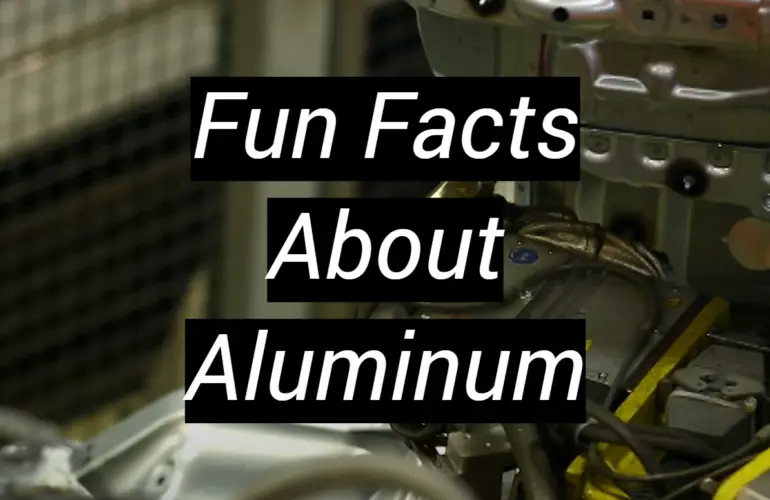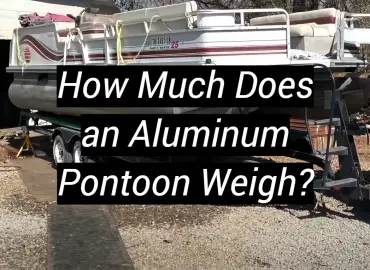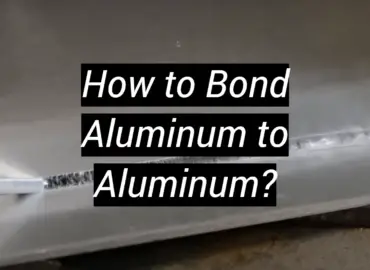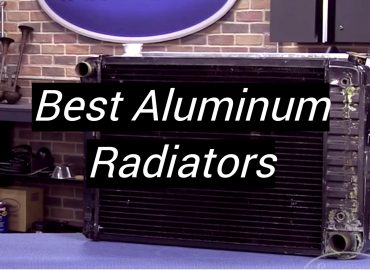Aluminum is one of the most versatile elements known to man, as it can be used for a wide range of applications. From being part of everyday products like soda cans and automobile parts to powering planes in the sky, aluminum has quickly become an irreplaceable building block for society. But did you know that aluminum has some interesting facts? This blog post will provide readers with not only useful information about this element but also a few fun facts that could come in handy during conversations or quizzes! Get ready to explore all there is to know about aluminum – its history, chemical properties, and more.
Some General Information About Aluminum
Aluminum is a silvery-white metal that is lightweight and malleable. It has a wide range of uses in industries from construction to transportation, making it one of the most important metals of modern society. In fact, aluminum is so versatile that it can be found in the form of cans, foil and packaging materials as well as airplane parts, windows and automobiles.
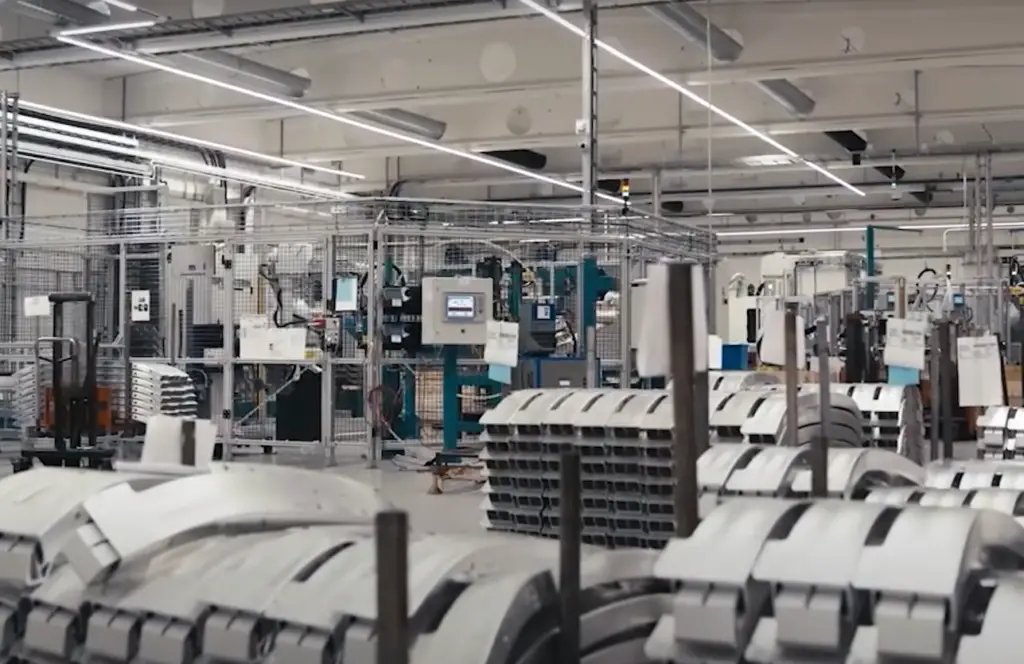
Aluminum stands out amongst other metals for its unique properties. It has excellent electrical conductivity, ductility (flexibility), durability and reflectivity which make it useful for many applications. For example, aluminum is used to insulate electronics due to its low thermal conductivity or ability to resist heat transfer. Additionally its high reflectivity makes it ideal for products that need to reflect light, such as mirrors.
Overall, aluminum has many uses and advantages which make it a highly sought-after metal for both production and recycling purposes. Its versatility, durability, low thermal conductivity and high reflectivity are just some of the reasons why aluminum remains one of the most important metals in modern society.[1]
Historical Facts About Aluminum You Should Know
Aluminum has been used throughout history, and it’s an element that continues to have a major impact on our lives today. It ’s one of the most recyclable and versatile metals available. Here are some historical facts about this incredible metal that you should know:
- Ancient Romans were the first people known to use aluminum in crafts – it was used to create jewelry and decorations as early as 200 B.C. Plus, the Romans used it in cooking vessels and other kitchenware.
- In 1825, a British scientist named Humphry Davy created the first aluminum salt by electrolyzing alumina (aluminum oxide). [2]
- In 1825, Danish physicist Hans Christian Oersted isolated pure aluminum which he then called “alumina” or “alkali alumina.” He was the first to recognize it as a distinct element.
- The first commercial aluminum production plant opened in 1856 in France – with techniques developed by Henri-Etienne Sainte-Claire Deville. [3]
- In the 1850s, several chemists experimented with electrolysis to separate aluminum from its ore bauxite but could not figure out an economically feasible way to do it. It wasn’t until 1886 when chemists Charles Martin Hall and Paul Héroult discovered an easier method using cryolite as a fluxing agent – the now famous Hall-Héroult process. This process revolutionized aluminum production, making it faster, cheaper, and more efficient than ever before. This process is still used today for mass producing aluminum products cheaply and efficiently. [4]
- The Wright Brothers used aluminum to build their first plane, the “Flyer I” in 1903. The lightweight and strong properties of aluminum made it an ideal choice for aircraft manufacturing. The plane was the first to achieve powered, sustained, and controlled flight.
- By 1915, aluminum was widely used in various industries – from airplane components to cookware. It also played a key role in World War I – being used to make ammunition casings and aircraft parts due to its lightweight strength.
- In the 1930s, scientists figured out how to alloy aluminum with magnesium which made it even stronger and lighter than before.
- This discovery opened up even more possibilities for the metal’s use in a variety of industries.
- During World War II aluminum production increased significantly due to its use in building airplanes. It also became a major component of military armor and ammunition manufacturing.
- In 1948, aluminum foil was used for the first time to wrap food products on a large scale for conservation and safety reasons. [5]
- Aluminum also helped launch the first US space mission in 1961 – when astronaut Alan Shepard became the first American in space aboard a Mercury-Redstone rocket that was constructed primarily out of aluminum alloys. This paved the way for other successful space missions such as Apollo 11 and Gemini 8 – both making use of lightweight and strong aluminum components.
These are just a few of the many facts about aluminum’s place in history – it’s truly remarkable how far this element has come!
Aluminum is also a key component of the modern day automotive industry. Many cars today feature aluminum parts for improved safety, performance, and fuel efficiency. The material is also starting to be used by some companies as an alternative fuel source – its highly combustible nature makes it ideal for powering vehicles while reducing emissions and saving money on fuel costs.

And now, why not explore more about this amazing element? You never know what fascinating facts you might unearth!
Must-Know Physical Facts About Aluminum
Aluminum is one of the most widely used metals in the world and has a range of physical properties that make it an ideal material for many applications. Here are some must-know facts about aluminum that you should be aware of:
- Aluminum has a melting point of 660°C, making it one of the more difficult elements to melt.
- Aluminum density amounts to 2.7 g/cm3, making it twice as light as steel and three times lighter than iron.
- It is highly malleable, meaning it can be easily bent or stretched without breaking. This makes material perfect for use in construction projects like building bridges or erecting sculptures.
- Aluminum has great electrical conductivity, making it a useful material for wiring and electrical components.
- It is also highly resistant to corrosion, meaning it can be applied in outdoor environments and other harsh climates without rusting or corroding. This makes aluminum a perfect choice for building materials like window frames and siding.
- Aluminum has a high reflectivity, allowing it to reflect up to 95% of all visible light. This property makes aluminum perfect for application in reflectors, mirrors, and other reflective objects.
- Aluminum is also quite resistant to temperature changes, meaning it can withstand extreme temperatures without breaking or warping. Therefore, it is suitable for the production of cookware and other objects that are exposed to high temperatures. [6]
Interesting Facts About Aluminum You Hardly Know
Now let’s get to the fun facts.
- Believe it or not, the first objects made out of pure aluminum were Napoleon’s tableware set from 1855!
- Aluminum is 100% recyclable without any loss of quality – around 75% of all material produced is still processed nowadays.
- Almost 8% of the earth’s crust is composed of aluminum, which is the third most abundant element. It can be found in a variety of minerals including bauxite.
- Aluminum alloys are applied to make cars, aircrafts, spacecrafts, beverage cans, window frames and much more.
- In addition to being lightweight and corrosion resistant, aluminum is also fire-resistant – making it a perfect choice for construction materials.
- On average, a fully loaded Boeing 747 contains over one million parts made from aluminum.
- While it may seem like aluminum is a light and soft material, it’s actually incredibly strong—it can withstand incredible amounts of pressure and heat without losing its shape or structure.
- Aluminum is also an excellent conductor of electricity—so much so that it’s used to power many of our electronic devices.
- Believe it or not, aluminum was even used on the first space shuttles.
- Aluminum can be recycled over and over again without losing its original properties, making it an extremely sustainable resource for energy production and manufacturing.
- The metal’s signature silvery-white color comes from its surface layer being constantly oxidized when exposed to air or water—a process known as corrosion.
- In Washington D.C., the Washington Monument is made of aluminum panels and stands at an impressive 555 feet tall.
- Aluminum industry employs over 600,000 workers in the United States alone.
- Well-known car brands such as Audi, BMW, Ford and Mercedes use aluminum in their car production.
- Aluminum is a major component of electronics and medical devices — everything from iPhones to pacemakers.
- The element can be found in everyday items like toothpaste, baking powder, antacids and some dyes.
- The color of aluminum is silver, however it can be anodized to create a range of colors such as gold, blue and black.
- China is the world’s largest producer of aluminum, followed by Canada and the United States.
- Aluminum foil is a common household material used to protect food from oxygen, light, and moisture. It can also be used as non-abrasive cleaning materials.
- Telescopes also use aluminum as a lightweight and reliable material. Manufacturing aluminum telescopes requires an extremely high level of precision.
- Aluminum is also used to make furniture, cookware and utensils.
- The most amazing fact might be that one ton of recycled aluminum saves 14 tons of bauxite and 40 percent of energy that would have been required to produce new metal from raw materials.
- Recycled aluminum requires only 5% of the energy used in ore processing.
- Applying recycled aluminum reduces air pollution by 95%, water pollution by 97% and solid waste by 99%. This makes aluminum one of the most eco-friendly materials available. [7]
- Powdered aluminum is even used as a propellant for solid rocket motors and fuel for hybrid rocket engines.
- Aluminum roofs are often used due to their longevity, as they can last up to 50 years with minimal maintenance.
- Aluminum is non-toxic to humans and animals.
- The element is highly reactive. It reacts with most other elements, forming compounds such as oxides. Aluminum is also a major component of many common minerals, including feldspar and mica.
- It is never rusty because aluminum oxide forms a protective layer on the surface.
- Aluminum is also used to make coins, and it has been since ancient times.
- White dross is a by-product of aluminum production. In its molten state, it looks like snow and has a slightly sweet taste.
- Aluminum is invariably employed in the form of an alloy. When combined with other metals, its properties become even more enhanced. The strongest aluminum alloys can be used in aerospace applications and for military armor plate. [8]
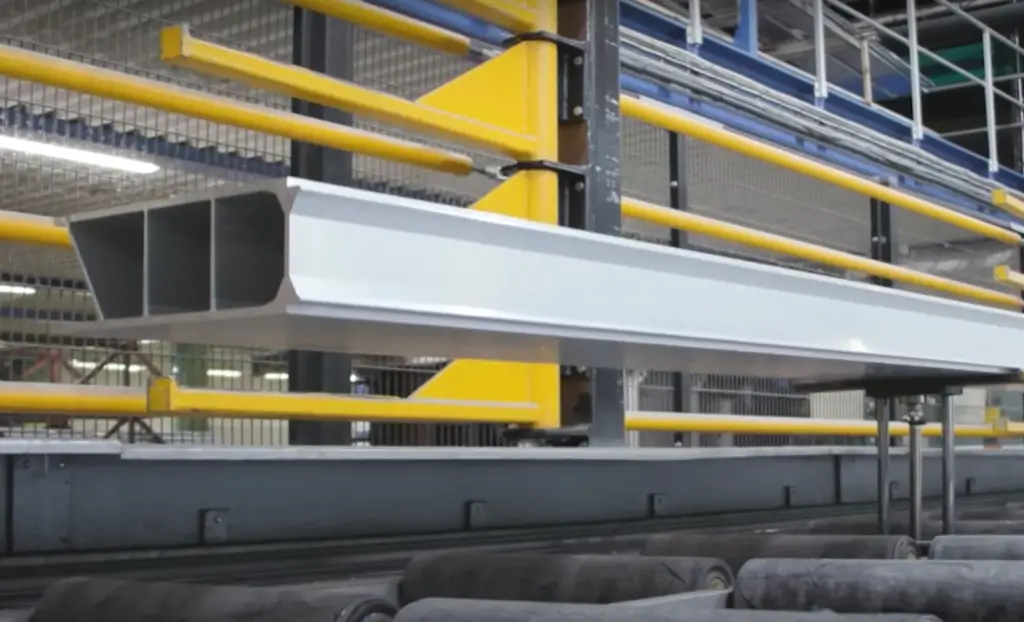
So there you have it – aluminum is an incredible and multi-functional material that has countless applications in our everyday lives.
FAQs
What is interesting about aluminum?
Aluminum is a lightweight, corrosion-resistant metal that is used in many everyday items such as aluminum cans, foil and kitchen utensils. Aluminum has many properties that make it an ideal material to use for various purposes such as being electrically conductive, nonmagnetic and having a high thermal conductivity.
What are some fun facts about the mineral aluminum?
Aluminum has been around since prehistoric times, but was not widely produced until 1825 when a process to extract it from ore was discovered by Hans Christian Oersted. Because of its light weight and good conductivity, aluminum is ideal for use in transportation vehicles. Aluminum has a variety of uses – from beverage cans, foil containers, window frames and even spacecraft components.
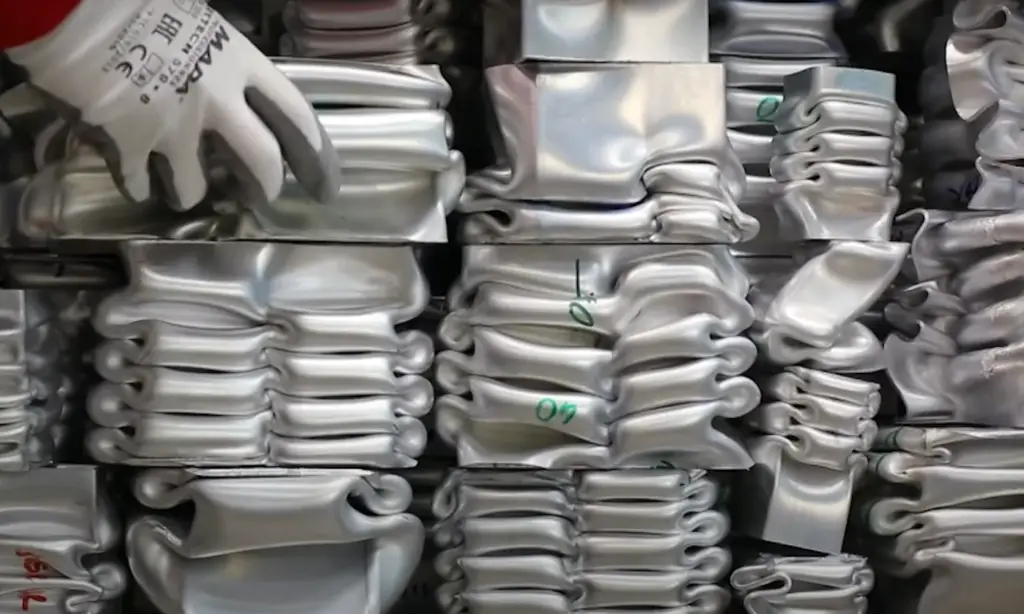
Aluminum can be recycled indefinitely with no loss of quality making it one of the most sustainable materials available. China is the world’s largest producer of aluminum, followed by Canada and the United States.
Can aluminum rust?
No, aluminum doesn’t rust. Rust is caused by oxidation of iron, but aluminum is actually a relatively inert metal which does not oxidize easily. This is why aluminum conducts electricity and heat so well—it forms an oxide coating that helps protect it from further corrosion. That said, aluminum can still corrode in certain conditions. It’s particularly susceptible to saltwater corrosion which occurs when chloride ions come into contact with the metal surface. To prevent this type of corrosion, manufacturers often use special coatings or anodizing processes to protect the metal from corrosive environments. Additionally, regular cleaning and polishing can help maintain the protective layer around aluminum and keep it looking new!
Why was aluminum rare?
Aluminum was once a rare and expensive metal due to the difficulty of extracting it from its ore. Before the mid-19th century, aluminum had not been isolated in its pure form. Early attempts to purify aluminum involved combusting aluminum chloride with potassium amalgam, which yielded impure aluminum when cooled.
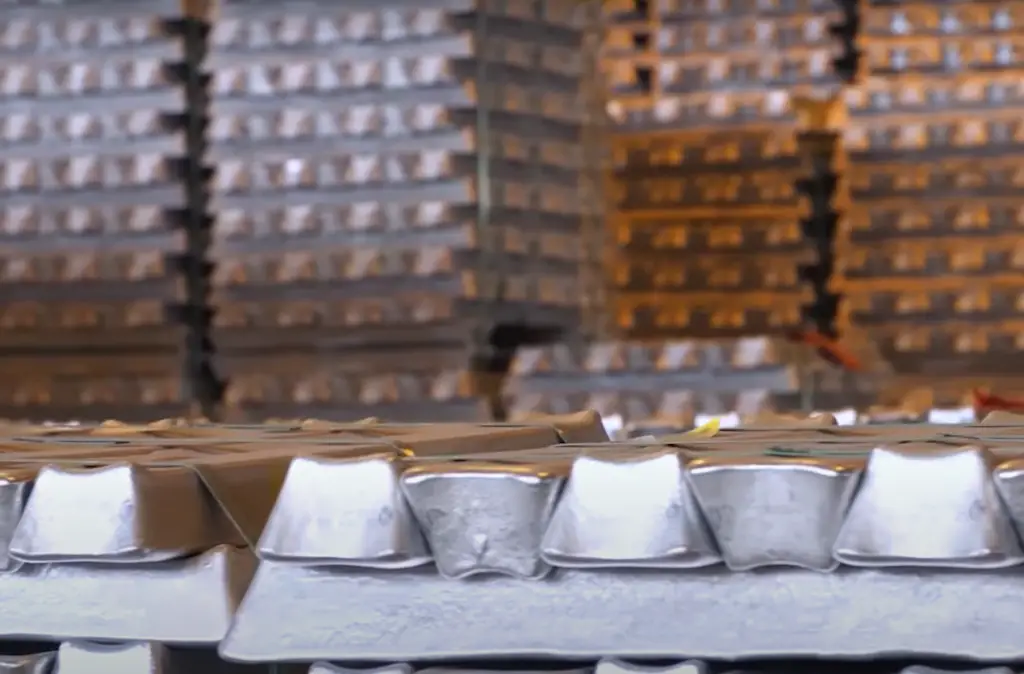
It wasn’t until 1825 that Hans Christian Oersted managed to produce relatively pure samples of the metal for scientific study. In 1886, Charles Martin Hall and Paul Louis Toussaint Heroult discovered an electrolytic process that allowed them to economically extract aluminum from bauxite ore using electric current; this revolutionized the production of aluminum and made it much more cost-effective. Since then, technological advances in production and processing have made aluminum a widely available metal, used in everything.
Useful Video:
Useful Video: Cleaning Burned On Grease From Stainless Steel
Summing Up
In conclusion, aluminum is one of the most versatile and widely-used materials in the industrial sector. Along with its multitude of beneficial end uses, it is also an incredibly environmentally friendly material – it requires minimal energy to transport and process, can be infinitely recycled with no loss of quality or properties, and produces minimal waste during production. This is why many companies and organizations are increasingly turning to this remarkable material as their go-to material for a variety of needs – from infrastructure projects to medical device manufacturing.
As we strive towards a more sustainable future, let us remember the importance of using materials such as aluminum that are not only cost-effective but also kinder to the environment we all share.
We hope that our interesting facts surprised you and forced you to look at this material in a different way.
References:
- https://blog.thepipingmart.com/metals/aluminium-properties-and-uses/
- https://muskita.com.cy/history-aluminium
- https://www.aluminiumleader.com/history/industry_history/
- https://www.acs.org/education/whatischemistry/landmarks/aluminumprocess.html
- https://www.alufoil.org/history
- https://www.kloecknermetals.com/blog/what-are-the-major-properties-of-aluminum/
- https://nems.nih.gov/environmental-programs/pages/benefits-of-recycling.aspx
- https://facts.net/aluminum-facts/

